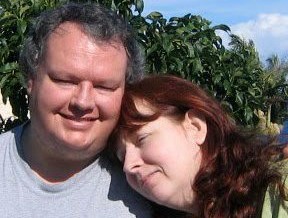Here’s why I truly believe “diets don’t work”…
I happen to think motivation is overrated. If you’re in the first 4 weeks of a new plan, motivation is super important. But if you have been on the same plan for 6+ weeks and you are having to keep “psyching yourself up” to stick to the plan, it is not a good life-plan.
1. Is your plan too hard? Running out of motivation after 6 weeks probably means your plan is difficult to follow. Take the opportunity to examine why your plan is difficult to follow. If you’re thinking “How can I find more motivation?” you can spend some time thinking about what makes your plan difficult.
2. Do you really expect it to get easier? If it’s not gotten easier after 6 weeks, it’s not going to change much the rest of the year. So you can struggle the rest of the year, or you can try changing the plan. You can always come back to this plan if you like.
3. Your plan should be a source of strength, not a source of stress. If you have to constantly pay attention, that means stress.
4. Does your plan depend on perfect conditions? If the rest of your life is pretty normal now, and following the plan doesn’t come naturally, the plan will *really* come off the rails with serious life-stress situations. Think what would happen to your plan if you, or a loved one were to die, or become chronically ill or disabled.
5. Is it a 6-month plan or a 60-year plan? Sure, you could plan to eat this way until you’ve lost the weight you want to lose, and then adjust the plan after that for maintenance, but that’s a huge risk. If you could spend 6 months in a difficult plan and then not have to worry about anything for several years, that might be an acceptable trade-off. But most of us know by now that it won’t work that way. So, don’t spend more than 4 weeks, maybe 6, in a plan that you won’t want to stick with the rest of your life. The quicker you discover the RIGHT plan for you, the sooner you can begin just living your life and not having to worry about food. So don’t spend more than 4-6 weeks living in a stressful plan.
6. You Are Not Broken. Much of the self-help weight-loss literature, as well as programs like calorie-counting or points, are based on willpower, correcting “bad” behavior, and forming good habits. That’s great–for the first 3-4 weeks. But I truly believe that this story line is great for selling more self-help books and tools, and actually bad at really helping people. There’s this theory that people with disordered eating are just selfish, or lacking self-control, or something about them mentally or emotionally is broken and causing them to overeat. Look inward and you can be taken in by this, and you can start to blame yourself for your shameful eating. But, look around at others as well. We all know plenty of other overweight/obese people, and most of those are mentally competent, emotionally stable, and quite competent in other parts of their lives. So don’t give in to the idea that we’re fat or have disordered eating because we’re not trying hard enough. If you genuinely have a mental or emotional issue, get help. But failing to stick to a difficult plan is not a defect.
7. Your willpower worked fine for 4 weeks. The good news, the flip-side of “You Are Not Broken” is this: If you were able to stick to the plan for 4 weeks, your willpower is just fine. Your motivation is just fine. You CAN do what you set out to do. You’ve already proved it. You didn’t fail, it is the plan that failed you. Find another plan. Keep trying until you find one that you are HAPPY to stick to for the next 5 years. The RIGHT plan will be hard for a couple weeks, maybe three, and by 4 weeks you will be thinking “This is the new me! I’m never going back!”
